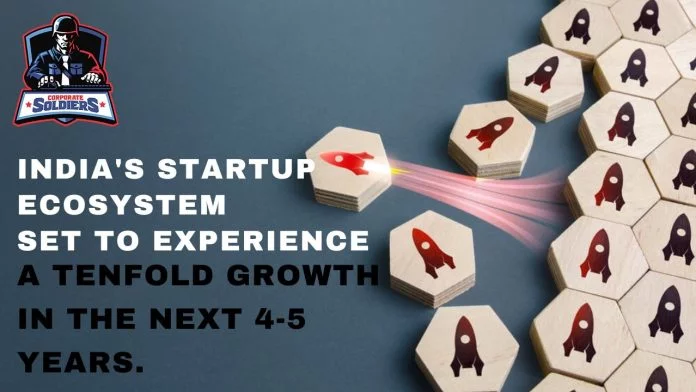Introduction
In recent years, India’s startup ecosystem saw a stunning transition that helped it get international attention. At the JITO Incubation Innovation Foundation (JIIF) Sixth Foundation Day and Investors/Startup Conclave in Hyderabad, Union Minister Rajeev Chandrasekhar voiced hope for the country’s future growth of businesses and startups. He emphasised the efforts made by the government to encourage and support entrepreneurship, which contributed to India’s success in producing unicorns and startups in cutting-edge technologies like AI, Web3, and deep tech. This blog will go into greater detail about the startup scene in India, its potential for exponential growth, and the contribution of the government to this dynamic ecosystem.
India’s Startup Revolution:
India has seen an increase in the number of businesses that have achieved unicorn status in recent years, which means their valuation has surpassed $1 billion. Not only have these entrepreneurs disrupted established industries, but they have also significantly influenced newly developing fields. Through programmes like Startup India, Digital India, Make in India, and Skill India, the government has taken a proactive stance and established a solid platform for supporting innovation, encouraging entrepreneurship, and empowering aspirant young brains.
Diversification and Emerging Technologies:
IT and IT-enabled services (ITes) have historically dominated India’s IT industry. Minister Chandrasekhar did draw attention to the recent major diversification. In a number of cutting-edge industries, including deep technology, artificial intelligence (AI), the data economy, semiconductor design, microelectronics, and high-performance computing, startups and unicorns are predicted to have significant growth over the next four to five years. These domains have witnessed significant advancements and are poised to play a crucial role in shaping the future of India’s startup ecosystem.
Enabling Environment for Startups:
Startups have grown significantly as a result of the government’s assistance in cultivating an enabling environment. Entrepreneurial talent has been developed in large part by the availability of finance, regulatory assistance, skill development programmes, mentorship networks, and startup incubators. Under Prime Minister Narendra Modi’s direction, the Ministry of Skill Development and Entrepreneurship has been in the forefront of driving these programmes, realising the potential of startups as engines for economic growth and employment creation.
The Projection of Exponential Growth:
Minister Chandrasekhar’s projection of a tenfold increase in startups within the next 4-5 years is a testament to the government’s confidence in India’s startup ecosystem. From the current count of 108 unicorns, the aim is to reach an astounding 10,000 unicorns. With over a lakh startups already in existence, the potential for exponential growth is tangible. The government’s continuous collaboration with industry leaders, aspiring entrepreneurs, and academia will further fuel this growth trajectory.
Skill Development and Collaboration:
Acknowledging the historical challenges faced by a significant portion of the population lacking skills, Minister Chandrasekhar emphasized the transformative impact of the Skill India initiative. The government has actively collaborated with both large and small companies, forging strategic partnerships to identify required skills and creating a comprehensive framework. By involving academia, communities, and corporations, the government aims to bridge the skill gap and provide a conducive environment for startups to flourish.
Conclusion:
India’s startup ecosystem has experienced a phenomenal journey, expanding beyond traditional IT services into emerging technologies and cutting-edge domains. With the government’s constant support, entrepreneurship is being encouraged, giving rise to businesses and unicorns that are making waves around the world. Significant exponential development is anticipated during the next four to five years, paving the way for new ideas, the creation of new jobs, and economic expansion. As the startup revolution in India picks up speed, the country is positioned to become a hub for technological innovation on a global scale, encouraging an entrepreneurial culture that benefits both the country and its bright citizens.










